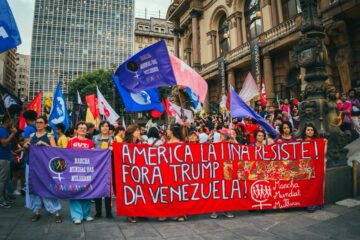“I feel that the Continental School, and maybe other schools that have been carried out across the continent, are going to empower women, especially peasant women, who do a lot.” This was a reflection by Susan Owiti about the initiatives conducted by peasant women who have, in 2024, held for the first time a coordinated series of Continental Schools of Women of La Via Campesina. Susan is a member of the International Coordinating Committee (ICC) of La Via Campesina (LVC) and an organizer of the African edition of the school, which brought together around 60 women in Togo.
Organized by La Via Campesina’s Women’s Articulation, the continental schools play the important role of developing a popular peasant feminism that can face the dilemmas of the territories: “I think that there are interesting things coming out for the women. It is being related to some of the struggles we are facing as the women peasants of La Via Campesina, because within our region, we realized that women still cannot access land, and we all know that the major food producers are women,” Susan says, adding that, “this space is empowering women to understand their rights, to understand their struggles, and also to see how the system has been structured in terms of exploiting women.”
Excerpts of this article are featured on the radio show Fúria Feminista, produced by Real World Radio, Capire, and the World March of Women Brazil, available in Spanish. Titled “Juntas” (“Together”), the episode discussed powerful meetings and activities for feminist education held in 2024.
A Process of International Efforts
Yolanda Areas Blass, from Nicaragua, is part of the Latin American Coordination of Rural Organizations (CLOC-LVC) and also of LVC’s Women’s Articulation. She talked about how the organization’s Latin American and Caribbean women have held the 6th edition of their Continental School in May 2024 in the Dominican Republic. CLOC-LVC’s schools of women have been an example for the regions that organized their first edition this year. “We, in the Americas, have this different or unique character to us, because we have been holding political education schools for many years,” Yolanda says, adding that, “today, we believe that defining a strategy for the development of political education schools is a qualitative leap that the Women’s Articulation of La Via Campesina is taking at an international level.”
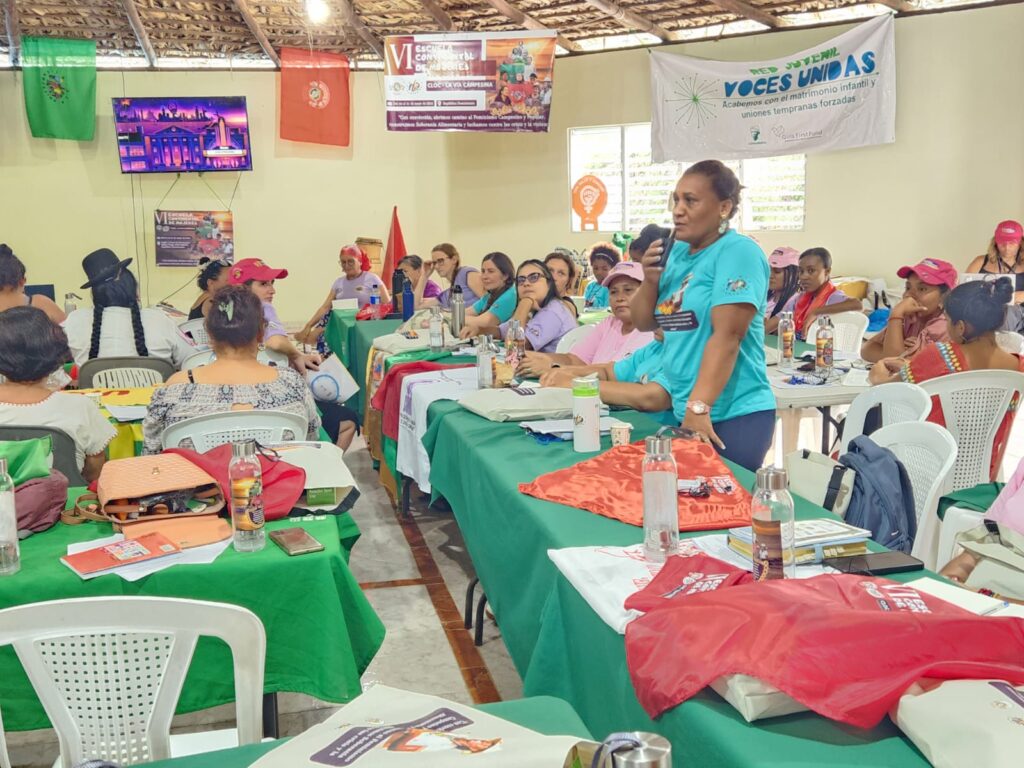
“Each region in La Via Campesina used to organize their own political education processes. Now we have been able to strengthen the school system of the Women’s Articulation from the first International Women’s School carried out in Africa, where we advanced globally in the discussion about popular peasant feminism and about women’s political participation,” Yolanda explains. At the schools, participants discuss peasant women’s political role in building food sovereignty and a world free from violence.
Siti Inayah, a militant from Indonesia, shares her assessment about the developments from the International School held in 2023 in Mozambique, in the African continent: “Some of the material presented in Africa last year was disseminated to representatives of women farmers who were present, to then be followed up in the national schools of women farmers of each member organization of La Via Campesina. The sustainability of schools at international to national levels is a good practice for aligning the ideology of the La Via Campesina struggle in particular popular peasant feminism movements.”
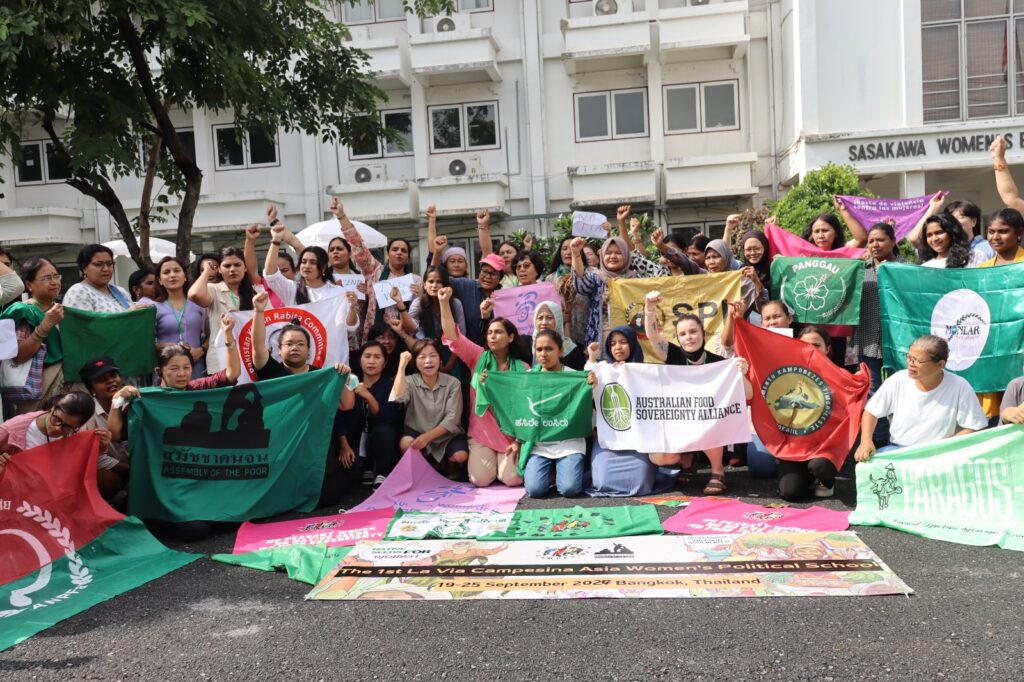
Experiences on the Continents
Siti also spoke about the school organized between September 19th and 26th in Bangkok, Thailand, which brought together women from 13 countries on the Asian continent. She said that, in addition to the topics that have been mentioned, the school aimed to promote a shared reflection about key concepts for La Via Campesina, including food sovereignty, agroecology, the Declaration on the Rights of Peasants, agrarian reform, preservation of seeds, and biodiversity.
Women who attend the continental schools are diverse and empower each other to replicate political education efforts and discussions locally, and also to promote deeper connections between local agendas and a global vision. The initiative also aims to boost the building of feminism within La Via Campesina. As Yolanda argues, “The schools provide knowledge, and knowledge is power. When women have knowledge and are informed, they have the power to talk about popular peasant feminism at La Via Campesina. In the past, we could not do that, because our reflections were not at the level of acknowledging that every action we take to defend our rights is pure feminism—it is essentially feminism.” The schools aim to empower the movement, as well as political alliances.
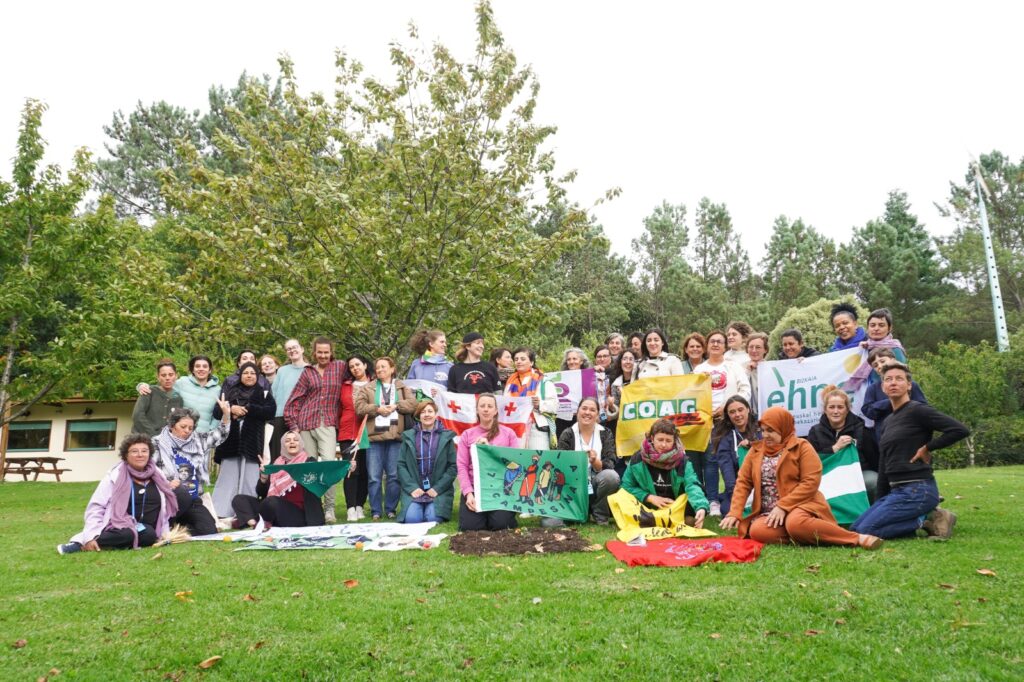
For women from Europe and the Arab and North Africa region (ARNA), the school went beyond continental borders. It was, therefore, an opportunity to strengthen bonds between regions. The school also strengthened the dynamics of ARNA sisters who have just recently organized regionally and have been facing enormous challenges due to Israeli colonialist attacks. They held three online sessions and one on-site five-day meeting in Galicia.
On the African continent, where the school was completely held on site, prior preparations posed challenges regarding internet connection: “Sometimes, those that have poor connection tried the best from their side, but, you know, the issue with the internet can disappoint you. I can say it is a learning process for us,” Susan Owiti says. Also, the team of educators has also been reflecting about the choices in the curriculum, considering the volume of topics and reflections happening in the space. “One of the main challenges in the Continental School we recently did in Togo was the time. We had many interesting topics to discuss in the school. Maybe spending more time on some of the issues, we could discuss differently.”
Susan also talked about elements like religious pressure on the patriarchal system and cultural norms that oppress women on the African continent and limit their political participation. “When we meet sisters in that space, we are trying to address and see how we can ensure that these things don’t limit us as women on expressing our struggles.” The school, she argues, is also a space for sharing information about instruments for putting forward demands, policies, and rights that have been already ensured, and discussing the absence of information, especially among rural women. “I think it was a very beautiful space and it should not only be one, but it should be a continuous school,” she argues, proposing a process of continuation.
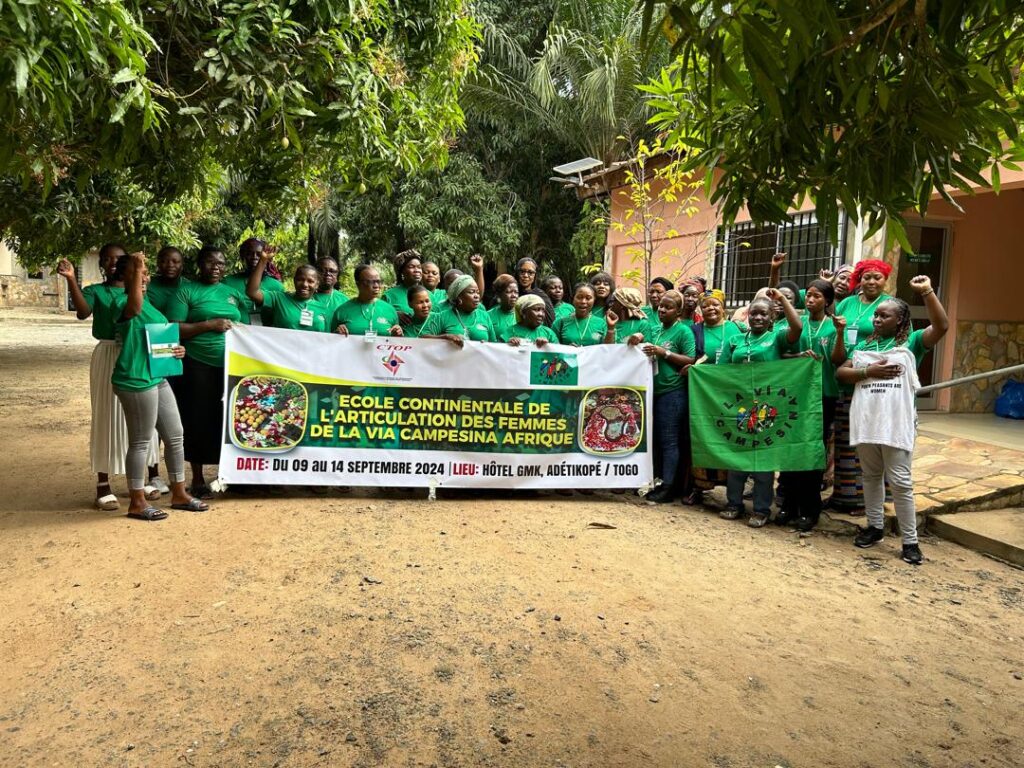
Taking the Lead and Self-Organizing
Maintaining spaces of feminist education empowers peasant militants as they take the lead in the political arena. “Women, especially peasant women, sometimes get scared of sharing or highlighting the issues that we are facing,” Susan argues. “The school is going to help women to understand themselves better, to understand our struggle clearly, and also to understand who our enemies are.”
“It was wonderful to meet sisters from different regions and languages and, by the end of the day, be understanding each other and our struggles as sisters, as the women of La Via Campesina,” Susan adds, demonstrating how important internationalism is for the peasant and feminist struggle. Being among sisters from several parts of continents and the world is what allows us to see similarities in local challenges and struggles. “There you realize that when we come together, as one voice, it is easy for us to address these issues and to come into an understanding.”
Yolanda echoes that as well: “The schools are spaces where women from different cultures and peoples converge as they experience common realities and, therefore, look for common solutions.” This way, the women of La Via Campesina empower the necessary feminism to globalize the struggle and hope.


